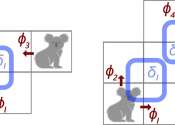Okinawa Institute of Science and Technology
The Okinawa Institute of Science and Technology Graduate University (OIST) is an interdisciplinary graduate school located on Okinawa, Japan. The school offers a 5-year PhD program in Science. Over half of the faculty and students are recruited from outside Japan, and all education and research is conducted entirely in English.
The university has no departments—OIST researchers conduct multi-disciplinary research in neuroscience, mathematical and computational sciences, physics, chemistry, integrative biology and molecular, cell, and developmental biology.
According to the Mission Statement, OIST's objectives are to "conduct internationally distinguished education and research in science and technology in Okinawa, to contribute to the promotion and self-sustaining development of Okinawa and to contribute to the development of science and technology worldwide."
- Website
- http://www.oist.jp/
- Wikipedia
- http://en.wikipedia.org/wiki/Okinawa_Institute_of_Science_and_Technology
Some content from Wikipedia,
licensed under CC BY-SA









